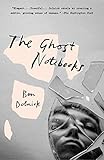When you write a book, there are certain questions you can expect: How long did it take you? Will you write a sequel? And—the inevitable—what is it?
What it is: thousands of hours tapping away on a keyboard between swiping student IDs at the Sarah Lawrence gym, months of crippling doubt, dozens of rewrites, maddening rounds of edits, the culmination of years of dreaming and plotting condensed into a 300-page manuscript with which I’ve imbued the emotional vulnerability of a pubescent diary.
No, they will persist. What is it?
I rehearsed this answer in my query letter, tweaked depending on the interest and need of the agent addressed: Complete at 80,000 words, this—
Sometimes it was a literary novel. Sometimes a literary commercial novel. Sometimes a literary novel with commercial appeal. Once, upmarket women’s fiction.
It’s adult literary fiction, I tell people. I think of the many times I’ve been prompted to make such unambiguous designations, usually without issue: I am Female. I am White. But something doesn’t feel right about defining my novel, about giving it a genre (a word that has always conjured for me cover images of bursting corsets and rippled abdominals). Something doesn’t feel right about defining novels at all.
As a bookseller, I compartmentalize novels everyday. If it’s not Science Fiction, Mystery, or Romance, then it falls under the catch-all umbrella of Literature. I watch our erudite Upper West Side clientele squint warily at the shelves. The other day, a man held up a novel with a beach on the cover—a cartoon woman sunning herself on a striped towel pictured—and sniffed distastefully. As though a thought bubble appeared above his head, he tossed the novel back on its stack of identical copies in a way that said, You call this literature?
If prompted, I couldn’t say with any tact what distinguishes literary from commercial fiction. Literary fiction values prose over plot, I might say. Commercial fiction is about the story, whereas literary fiction is about the characters. Like an indie flick verses a Hollywood blockbuster, one novel wears a pair of horn-rimmed spectacles and the other mirrored Ray-Ban Aviators. A literary agent I once interned for cut to the chase: “We’re looking for new literary voices,” she told me. “Try to find submissions with a mention of an MFA.”
As reluctant as I am to call my novel commercial, to call it “literary” can feel snobbish in its insistence. Who am I to say that I am more Mary Gaitskill than Mary Kay Andrews? Who am I to say what my novel is at all?
That’s the thing I’ve learned: once you release a novel into the world, you relinquish your control over how it is defined. What my “adult literary fiction” novel has become: Coming of Age. Contemporary Women. Romance. Suspense. Genre Fiction. My novel is amorphous, ready to be whatever it needs to be given the audience. What I can’t decide is whether this ability to sit on many different shelves is a benefit or a hindrance.
 Claiming multiple genres feels akin to presenting a business card with the title Artist/Writer/Dancer/Freelance DJ—a worse offense, perhaps, than asserting literary value. But in working in a bookstore, in placing books onto their various shelves and thinking, This doesn’t belong here, I’ve come to appreciate what a misnomer and a crutch a genre can be. When I pressed a copy of Lidia Yuknavitch’s The Book of Joan into a customer’s hand and told her, “It’s a sort of literary science fiction novel,” she stopped me there. “I don’t read science fiction,” she insisted, and I realized not even the modifier of “literary” could combat the negative connotation of genre fiction.
Claiming multiple genres feels akin to presenting a business card with the title Artist/Writer/Dancer/Freelance DJ—a worse offense, perhaps, than asserting literary value. But in working in a bookstore, in placing books onto their various shelves and thinking, This doesn’t belong here, I’ve come to appreciate what a misnomer and a crutch a genre can be. When I pressed a copy of Lidia Yuknavitch’s The Book of Joan into a customer’s hand and told her, “It’s a sort of literary science fiction novel,” she stopped me there. “I don’t read science fiction,” she insisted, and I realized not even the modifier of “literary” could combat the negative connotation of genre fiction.
 Few books are what they initially appear. I almost didn’t pick up Ben Dolick’s The Ghost Notebooks, put off by the word “supernatural” on its back cover and its placement on the Sci-Fi shelf. When a friend gave me the ARC of Tara Isabella Burton’s Social Creature that the bookstore had received, he said, “You read thrillers, right? This sounds like a thriller,” and I almost felt insulted. I put off reading the copy of Paullina Simons’s The Bronze Horseman that my coworker lent me, its promise of a “historical romance “ enough to raise my skepticism. “I promise, it has literary merit,” she told me. It took me a while to admit what I always knew: that to me, “literary” is synonymous with “well-written.”
Few books are what they initially appear. I almost didn’t pick up Ben Dolick’s The Ghost Notebooks, put off by the word “supernatural” on its back cover and its placement on the Sci-Fi shelf. When a friend gave me the ARC of Tara Isabella Burton’s Social Creature that the bookstore had received, he said, “You read thrillers, right? This sounds like a thriller,” and I almost felt insulted. I put off reading the copy of Paullina Simons’s The Bronze Horseman that my coworker lent me, its promise of a “historical romance “ enough to raise my skepticism. “I promise, it has literary merit,” she told me. It took me a while to admit what I always knew: that to me, “literary” is synonymous with “well-written.”
I grew up a competitive dancer. I did jazz and tap. Tap is explicit enough, but when it comes to jazz, people often respond with splaying and wiggling their fingers, evoking John Coltrane and Miles Davis. Jazz is just the name given to quick, upbeat numbers, I would explain. It’s not necessarily to jazz music. One of my dance routines in high school was to an M.I.A. song.
But that’s not jazz, they’ll say.
 The question is whether genres need to be abandoned, or if our definitions of genres need to be expanded. Few novels fit snuggly into one category, though there are no doubt novels that do: Science Fiction, Mystery, Romance. It was Octavia Butler and Junot Díaz who allowed me to start to question those classifications in college with Kindred and The Brief Wondrous Life of Oscar Wao, respectively. I hadn’t known that literary novels could have time travel and magic and, knowing this, it didn’t seem fair or even possible that Kindred and Keith Roberts’s The Furies could occupy the same shelf. It only occurred to me then that I’d always thought “literary” also meant taking place in the real world. The Furies is science fiction. Kindred is more complicated than that.
The question is whether genres need to be abandoned, or if our definitions of genres need to be expanded. Few novels fit snuggly into one category, though there are no doubt novels that do: Science Fiction, Mystery, Romance. It was Octavia Butler and Junot Díaz who allowed me to start to question those classifications in college with Kindred and The Brief Wondrous Life of Oscar Wao, respectively. I hadn’t known that literary novels could have time travel and magic and, knowing this, it didn’t seem fair or even possible that Kindred and Keith Roberts’s The Furies could occupy the same shelf. It only occurred to me then that I’d always thought “literary” also meant taking place in the real world. The Furies is science fiction. Kindred is more complicated than that.
Besides the interest of the consumers, another thing that cannot be controlled is the age. I struggled to decide the age of my potential audience in the query process, again modifying how I framed the novel depending on the person I was trying to please. This is an adult novel with young adult appeal. This is a young adult/adult crossover novel. Some editors suggested that I needed to decide. My thought: couldn’t it be for both?
I’d like to think that by resisting definition, I’ve opened my novel to the possibility of universal appeal. But there is no shelf for YA/Adult coming-of-age literary commercial women’s novels, no reader seeking this niche market. By being perceived by different audiences and consumers as so many different things, I worry that my novel isn’t really anything at all.
Categories are needed to an extent. Not all dances at a competition can be entered into the “open” category. Not all novels belong under the literature umbrella. Some designation is needed to direct consumers toward what they like, what they want.
But there’s no formula to say what sends a novel to the Romance or the Literature shelf. Who can put a value on prose? Who determines what is plot-driven and what is a character study? Perhaps all booksellers and publishers and marketing teams can do is find the closest fit, categorizing by the predominant quality of the novel, and what consumers need to learn to do is keep an open mind. Not all science fiction involves alien invaders. Not all YA novels are strictly for young adults.
 When I recommended Karen Thompson Walker’s The Age of Miracles to a customer at the bookstore, I emphasized its complexity. “It’s a near-future apocalyptic coming-of-age novel,” I told her. “It has sci-fi devices but is distinctly literary, and it has a young narrator but she has an adult disposition.”
When I recommended Karen Thompson Walker’s The Age of Miracles to a customer at the bookstore, I emphasized its complexity. “It’s a near-future apocalyptic coming-of-age novel,” I told her. “It has sci-fi devices but is distinctly literary, and it has a young narrator but she has an adult disposition.”
I expected a “I don’t read science fiction.” Instead I was told, “That sounds interesting.”
In any case, let’s stop using Women’s Fiction. The idea that there are books written solely for women is a fiction itself.
Image Credit: Blue Diamond Gallery.










